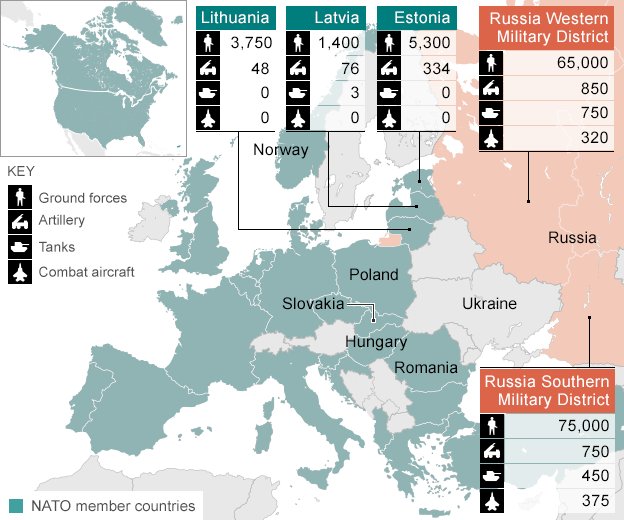RUSSIAN MILITARY TO LAUNCH DRILLS THAT COULD DEFEAT NATO FORCES IN LESS THAN TWO DAYS

Canada is preparing to deploy troops to Latvia as part of a NATO plan to bolster the Western military alliance's borders with rival power Russia, but Moscow has plans for a show of might that will likely dwarf NATO's efforts.
Advertisement

Latvian ambassador to Canada Karlis Eihenbaums said Friday that his nation, which has previously expressed concern about Russian military activity in Europe's Baltic region, was particularly on edge ahead of its neighbor's quadrennial defense maneuvers called Zapad, or "West," due to be held in August and September. Eihenbaums said the drills, which date back to the Soviet period, have left Latvia uneasy in past years, but that this year's exercise would be especially concerning given the dueling military buildup that has occurred between NATO and Russia in the past few years.
"You cannot feel safe," Eihenbaums told CBC News.

Servicemen take part in the joint war games Zapad-2013 (West-2013), attended by Russian President Vladimir Putin and President of Belarus Alexander Lukashenko, at the Khmelevka range on Russia's Baltic Sea in the Kaliningrad Region, September 26, 2013. The quadrennial games were set to be held again in 2017 amid heightened geopolitical tensions between Moscow and NATO.ALEXEI DRUZHININ/RIA NOVOSTI/REUTERS
Canada has already begun sending vehicles and equipment to Latvia, which was designated by NATO last year as one of four battle groups to which the multinational force would devote its resources. In addition to Latvia, the groups also include fellow Baltic states Estonia and Lithuania as well as Poland. Canada is set to send the first of 450 soldiers to Latvia next month and will be joined by forces from NATO allies Albania, Italy, Poland, Slovenia and Spain. About 1,200 troops in all will be stationed in Latvia, with an additional 800 more in Estonia, 1,200 in Lithuania and 4,000 in Poland. Despite this escalation, however, NATO's moves have been described as merely a "tripwire" to Russia.
Russia already maintains a force numbering tens of thousands of troops at strategic border points in the region. In 2016, the Rand Corporation ran an analysis of multiple conflict scenarios and found that "across multiple plays of the game, Russian forces eliminated or bypassed all resistance and were at the gates of or actually entering Riga, Tallinn, or both, between 36 and 60 hours after the start of hostilities." Russia has since announced wide-ranging initiatives to expand and modernize its defense capabilities, including more powerful submarines, more sophisticated missile defense systems and the creation of a service branch dedicated specifically to electronic warfare. This year's Zapad drills were set to see from 70,000 to 100,000 Russian troops join their Belarussian allies for a simulated battle with NATO forces, according to Russia's state-run Sputnik News.
Secretary of Defense James Mattis said Wednesday during a trip to Lithuania, which will host a German-led NATO battalion, that Russia's buildup was "destabilizing" and stated NATO would maintain a defensive posture. U.S. officials had earlier suggested that the Pentagon may authorize the deployment of a Patriot missile defense system to the region in preparation for Russian missile movements across the border, but Mattis and Lithuanian President Dalia Grybauskaite declined to comment specifically on the potential installation.

Both the U.S. and Russia have accused the other of trying to provoke a military showdown in Europe, but neither has expressed a willingness to engage the other in combat. After suffering a political falling out earlier this month over opposing policies toward war in Syria, the White House and the Kremlin have attempted to mend their political relationship, which suffered significantly under former President Barack Obama. However, a series of scandals and investigations centering around connections between the administration of President Donald Trump and Russia have left many U.S. officials suspicious of Moscow's intentions. Russia denies interfering in U.S. politics and has called on Washington to restore relations between the world's two foremost military powers.
Trump met with Russian Foreign Minister Sergei Lavrov Wednesday to discuss the countries' positions on international affairs and Russian presidential aide Yury Ushakov called on the U.S. Friday to "normalize the Russia-U.S. relations," according to Russia's Sputnik News.











